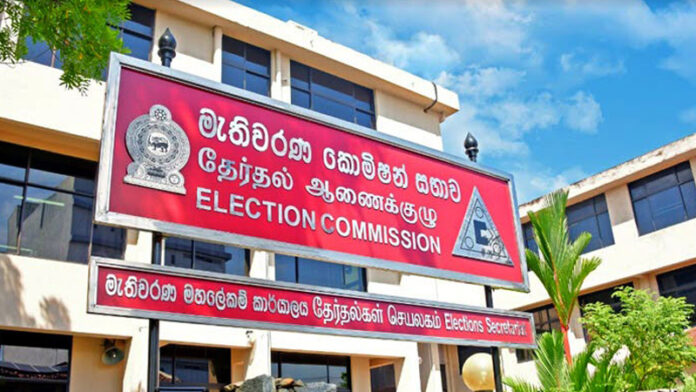May 15, Colombo (LNW): The Election Commission of Sri Lanka has initiated the formal post-election process of constituting local government bodies, urging all recognised political parties and independent groups to promptly submit the names of those elected to councils in the recent Local Government elections held on 6 May.
In an official communication, Commission Chairman R.M.A.L. Ratnayake requested that the relevant details be submitted by the end of this week, warning that delays could hinder the gazetting of council members and disrupt the administrative formation of local authorities.
The Commission’s directive outlines the legal framework under which parties must act—stating that representatives must be nominated to their respective councils within a week of receiving the official notification from the electoral authorities. The notice has been dispatched to all qualifying political entities, detailing the process for submitting nominations based on the number of seats secured.
In cases where a political party or independent group has obtained an outright majority—defined as more than 50% of the seats in a given local authority—the Commission has also instructed such entities to put forward their nominations for key leadership positions, including Mayor or Chairman, depending on the designation applicable to the relevant council.
This move marks a crucial phase in concluding the 2025 Local Government electoral cycle, transitioning from vote-counting to institutional formation. Once the required nominations are reviewed and verified, the Commission will formally publish the names of all elected members and their respective council leaders in the official gazette, making the appointments legally binding.
The process is expected to be swift and systematic, given the scale of the election and the public demand for operational and accountable local governance. Over 17 million Sri Lankans were eligible to vote in the election, which saw intense competition for control of 339 local bodies across the country.
While voter turnout was relatively subdued compared to previous polls, the election has nonetheless set the stage for a major reshaping of local political dynamics, with several new parties, including the National People’s Power (NPP), registering significant gains.
The Election Commission’s firm timelines and procedural clarity are seen as attempts to maintain order and transparency in the aftermath of the polls, especially amid heightened public scrutiny of electoral integrity and administrative follow-through.
Observers note that the swift finalisation of council memberships will also allow for a timely start to local development work, including infrastructure repair, waste management, community health, and public service delivery—areas that have often suffered due to bureaucratic delay following elections.
The Commission has called on all political entities to act responsibly and cooperate fully to ensure a smooth and lawful transition from election results to functioning local government institutions.

